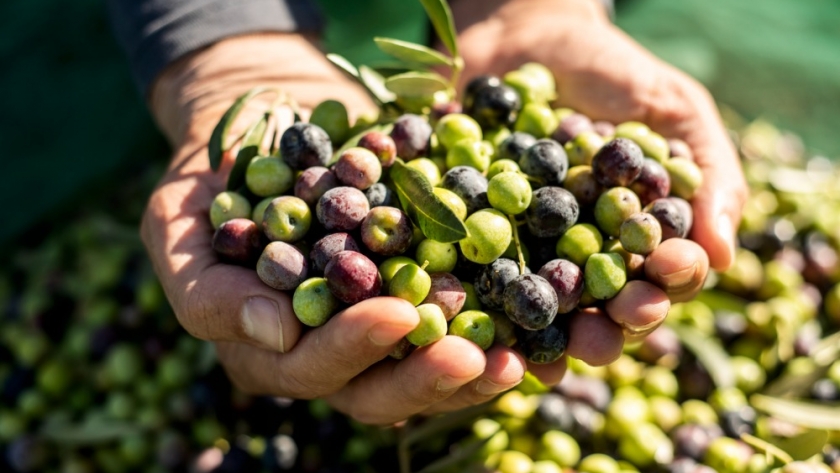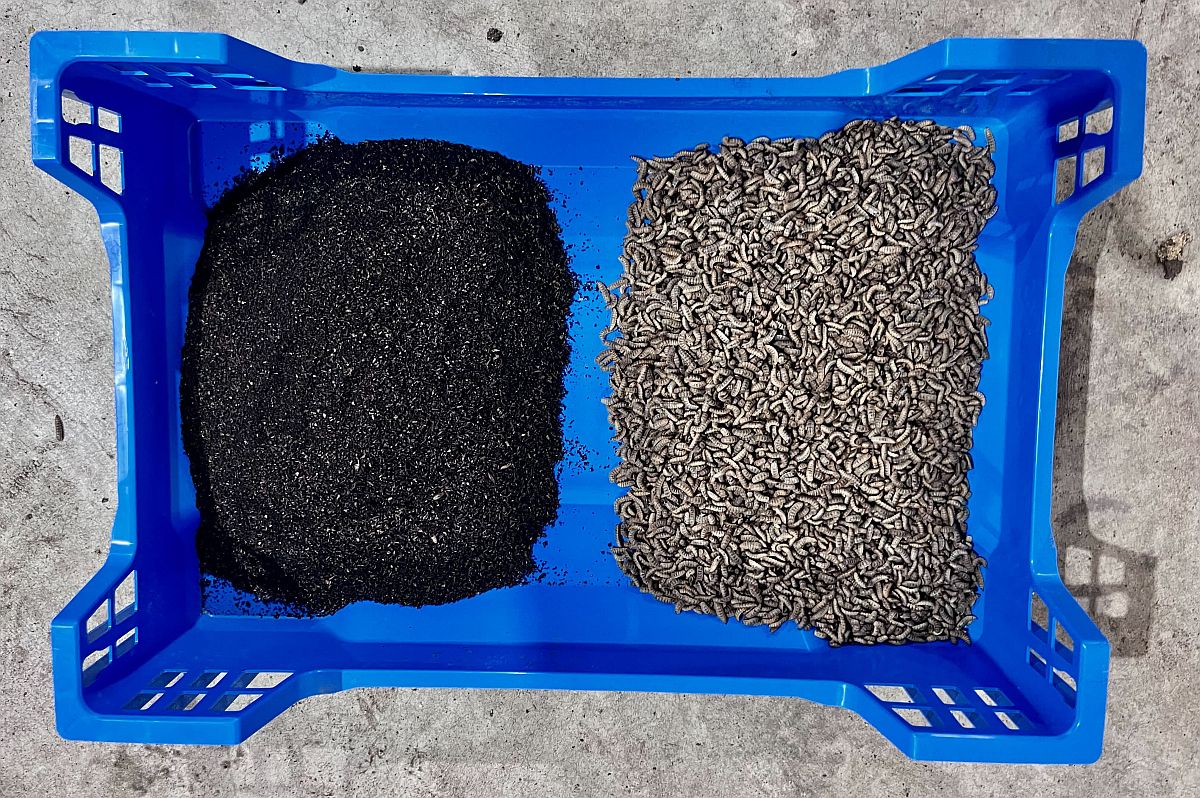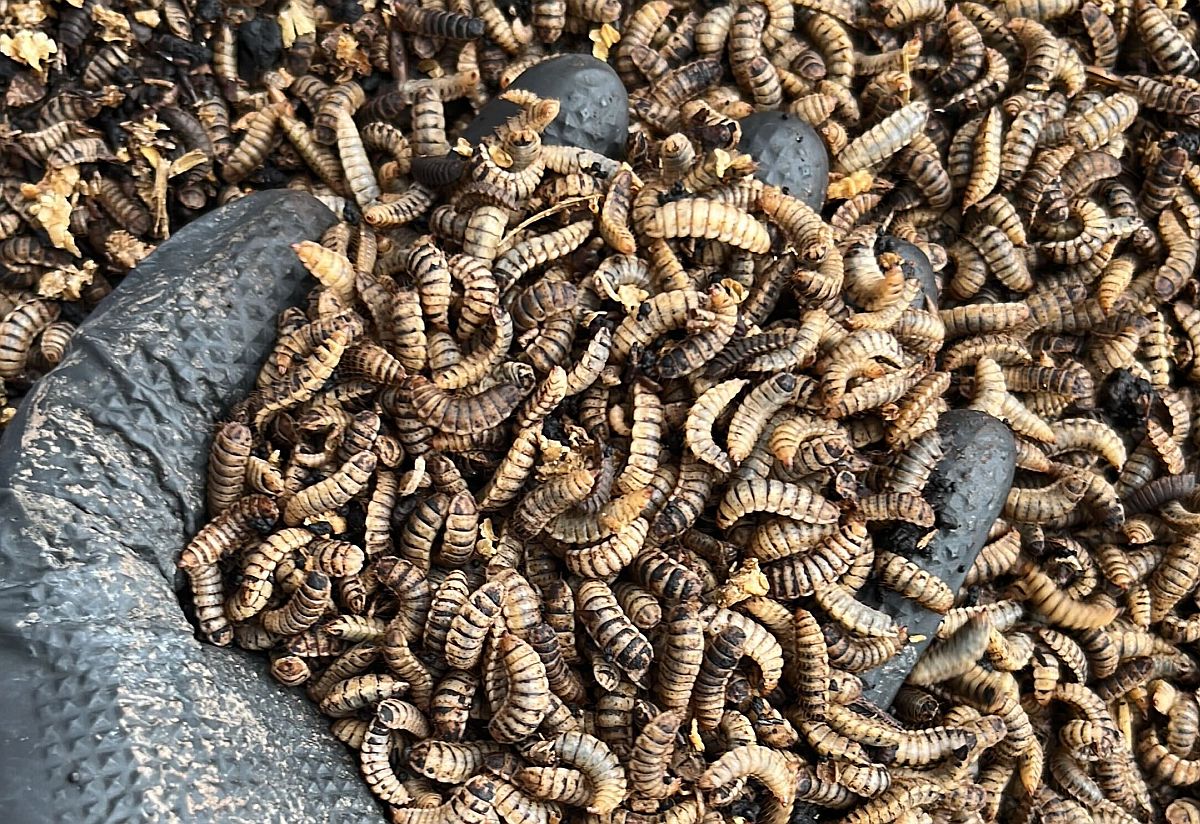
By Agroempresario.com
In a sector riddled with high-profile failures, Spanish startup InsectBiotech is charting a new course in insect agriculture by tapping into an abundant and underutilized resource: Spain’s olive waste. The company, founded in 2022 by Tobias Webb, Ignacio Gavilan, and Ben Brown, believes it has found a cost-effective and scalable model by harnessing olive pomace and renewable energy in Andalucía, Spain.
With the insect ag industry littered with the remains of startups that underestimated the challenges of scaling biological systems, InsectBiotech is fully aware of the obstacles ahead. Yet Webb and his team see unique advantages in their approach, rooted in resource optimization and second-generation industrial partnerships.
“It hit Ben while he was driving through Andalucía,” Webb recalls. “He called me and said, ‘I’ve figured it out. There’s a massive amount of olive waste and unlimited solar energy here.’”
Indeed, Andalucía generates 4.8 million tons of olive pomace annually—the residue left after olives are pressed for oil. Despite widespread skepticism about its suitability as insect feed, InsectBiotech found a low-cost green chemistry method to make the material digestible for black soldier fly larvae (BSFL).

Since then, the team has been conducting tests at two small pilot facilities: one based in a shipping container at the University of Granada, and the other at an olive mill, Casa Grande, where lab results have been validated under real-world conditions for the past 18 months.
According to Webb, their findings have been encouraging. “We believe we can run a scaled facility using more than 90% olive pomace as feedstock. This would enable operating costs up to seven times lower than some other players in the sector,” he says.
The consistency of olive pomace further supports the business model. Reliable feedstock translates to more predictable end products—namely protein-rich insect meal, oil high in oleic acid (thanks to the olives), and frass, an insect-derived soil amendment.
InsectBiotech’s model contrasts sharply with early insect ag ventures that envisioned vast, highly-automated, and expensive facilities resembling Amazon warehouses. Instead, InsectBiotech aims to build medium-sized plants capable of producing 2,000 tons of protein and 4,000 tons of frass annually, leveraging local resources and avoiding costly overengineering.
Their strategy is receiving some external validation. Other projects, like OLIFECycle—a collaboration among Dapibus Tech, LIVIN farms, and inèdit studio—are also exploring olive pomace as feedstock for BSFL farming, backed by the EU’s LIFE Environment and Climate Action Program.
Stepping back, Webb argues that InsectBiotech is part of a “second generation” of insect agriculture startups. These players are better positioned because they can learn from the hard lessons of earlier pioneers who often burned through capital while developing factories and processes from scratch.
“Today, you don’t have to reinvent everything,” he says. “Companies like Better Insect Solutions can build a 2,000-ton facility for you. You can source neonates from companies like FreezeM and Nasekomo, who specialize in delivering baby BSFL in suspended animation. It’s a much more modular, efficient approach.”
Energy costs are another factor working in InsectBiotech’s favor. Southern Spain’s solar potential could supply between 80% and 100% of the company's energy needs, significantly cutting operational expenses. Plus, the local climate naturally maintains the high temperatures BSFL larvae require, reducing the need for energy-intensive heating.
In the short term, InsectBiotech sees strong demand in aquaculture and pet food markets, two sectors eager for sustainable protein sources. The startup is already under NDA with two of the world’s largest pet food companies, who have provided clear targets for pricing and volumes necessary to secure offtake agreements.
Meanwhile, InsectBiotech is conducting agricultural trials to test its frass product as a soil amendment in vineyards, strawberry fields, raspberry farms, and other high-value crops.
“The feedback so far has been positive, especially in sectors focusing on regenerative agriculture and soil health,” says Webb.
Despite the promising model, Webb acknowledges that raising capital in the insect ag space is more difficult than a few years ago. High-profile struggles at leading companies such as Agriprotein, Ÿnsect, and Aspire have made investors cautious. The sector’s proximity to the vertical farming industry—which has also seen significant failures—only compounds the skepticism.
However, InsectBiotech has already secured €1.5 million ($1.7 million) in seed funding, supporting its pilot operations. The company is now seeking an anchor investor for its next funding round, which will finance the construction of its first full-scale plant.
Webb anticipates that corporate money—such as investments from Cargill, ADM, and Tyson into other insect startups—could flow in once InsectBiotech demonstrates reliable production at scale.
InsectBiotech’s medium-term vision involves setting up a network of facilities adjacent to olive mills across southern Spain. This proximity minimizes transportation costs and leverages abundant land resources and excellent logistics connections, with highways leading to Madrid and access to pet food manufacturing hubs.
“Spain’s aquaculture sector is growing fast, making it a hotbed for investment,” Webb adds. “And regenerative agriculture is gaining momentum, increasing the potential demand for our frass.”
Looking ahead, Portugal and North Africa are natural next steps for expansion, given their significant olive production and similar climatic advantages. Discussions with the Moroccan government and Portuguese investors have already begun.

Nevertheless, Webb emphasizes the importance of focus: “Before thinking about international expansion, we must prove the model works here in Spain. Consistency is key. Big customers want a reliable supply chain, and many have been burned by inconsistent supply from other insect ag startups.”
If successful, InsectBiotech could offer a blueprint for sustainable insect farming by turning agricultural waste and solar power into valuable products. More than just an environmental story, it’s an economic one—where solving feedstock and energy challenges may finally unlock the scalable future insect ag has long promised.
